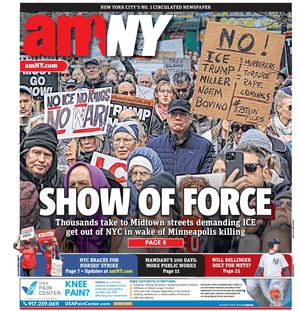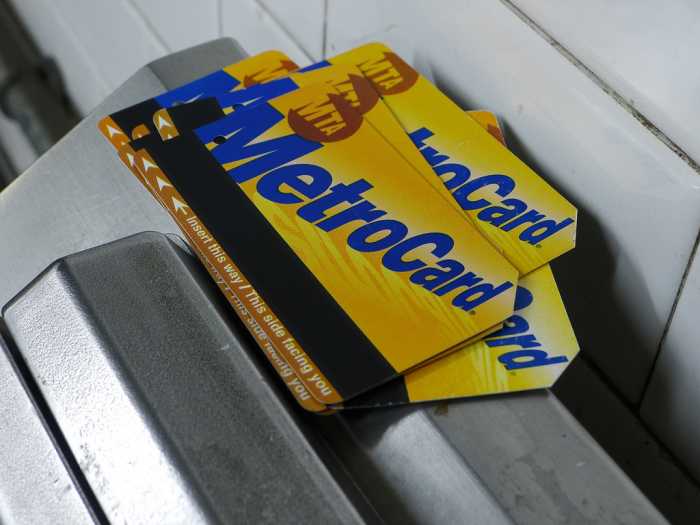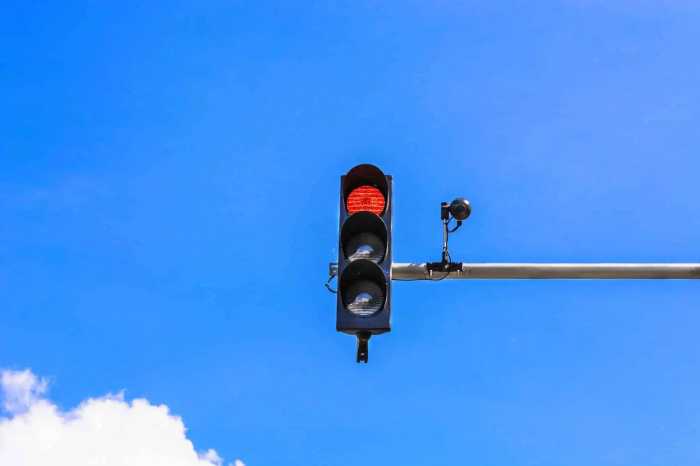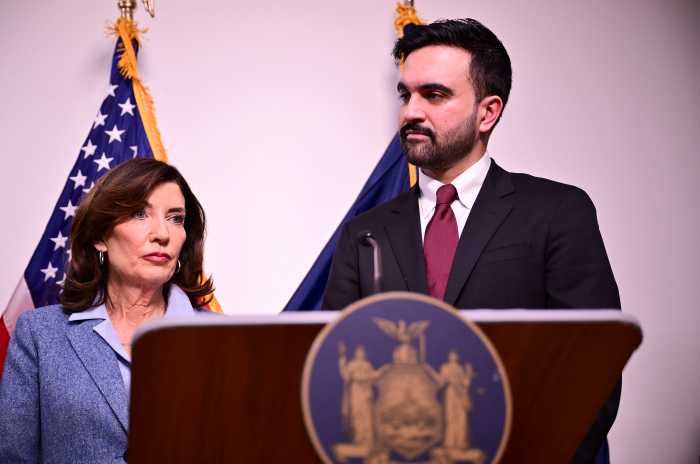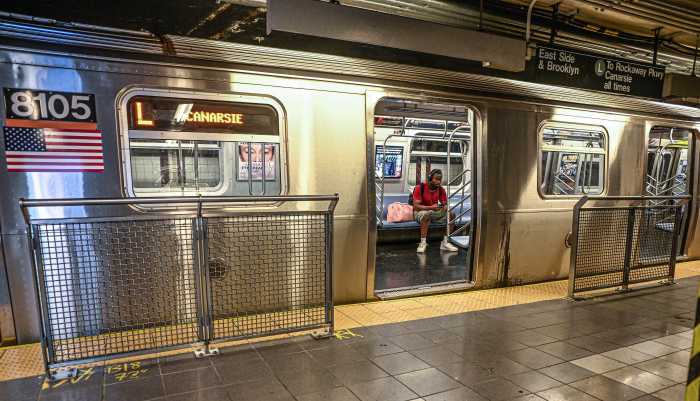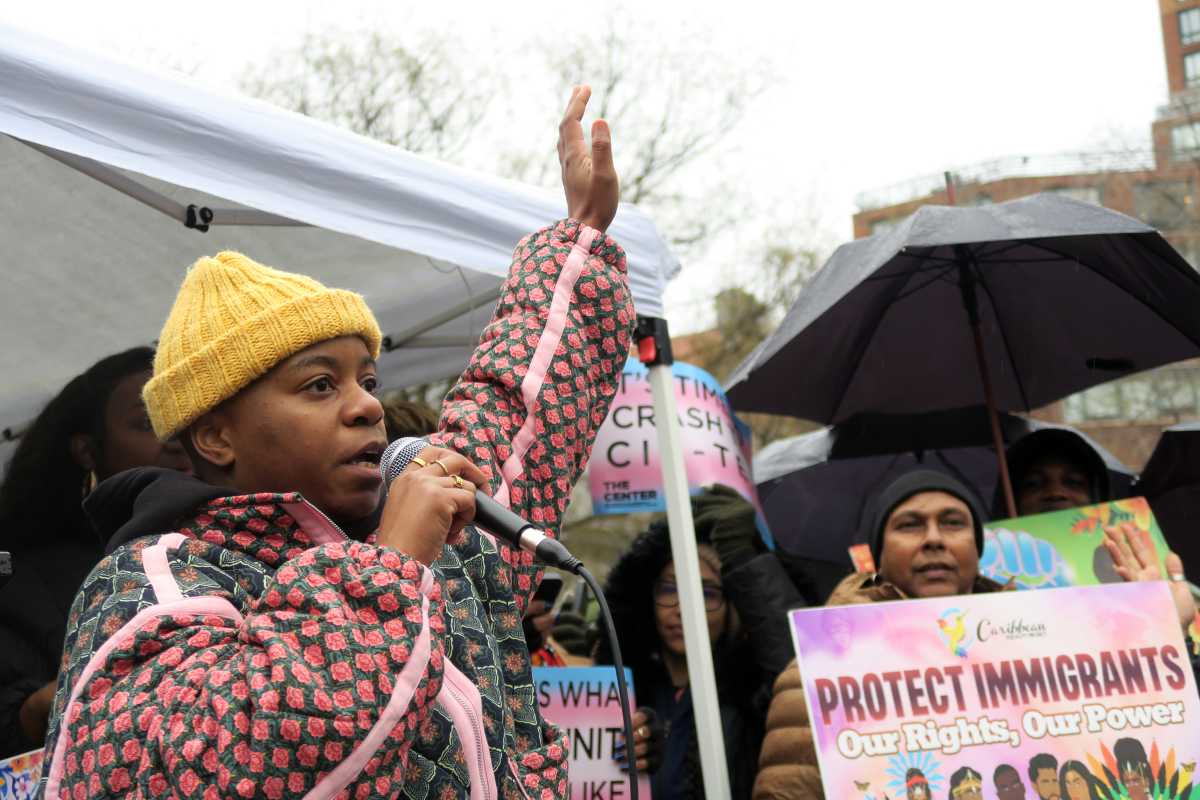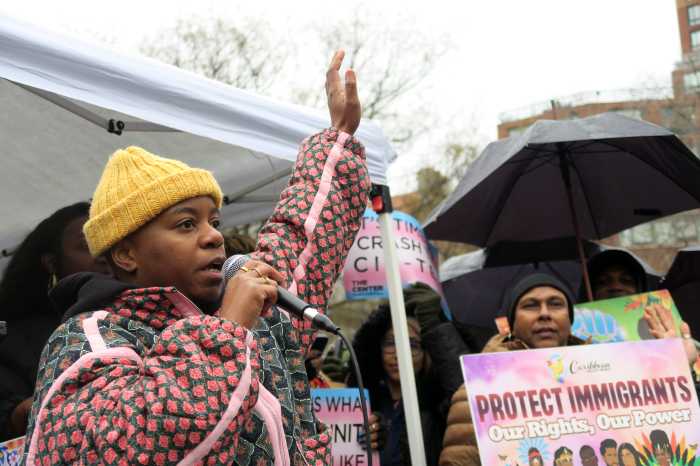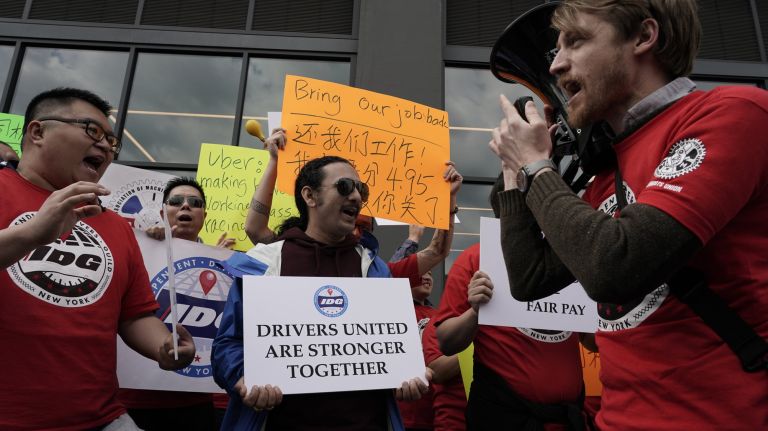
App-based drivers in New York City struck, rallied and drove a caravan of black cars over the Brooklyn Bridge Wednesday to protest working conditions ahead of Uber’s expected Friday IPO.
The workers are all independent contractors, many of whom had worked for years in New York City earning less than the equivalent of a minimum wage. They are demanding better job security — with more protections from being deactivated from the app — and a bigger share of fare revenue from Uber, as the Silicon Valley giant seeks a roughly $90 billion valuation.
“Uber is kicking our drivers in the teeth … doing the IPO,” said Michelle Dottin, an e-hail driver for three years from Ocean Hill, Brooklyn. “We were the human capital. We still are the human capital.”
Dottin was one of at least a hundred drivers who took part in the first of two rallies planned outside the headquarters of Uber and Lyft in Long Island City. The rally — fiscally focused with chants of "Wall Street slavery! Stop it now" and "Where’s our stock?" — followed a two-hour strike during the morning rush hour, when an unknown number of city drivers turned off their apps, alongside drivers in major metropolitan areas around the world.
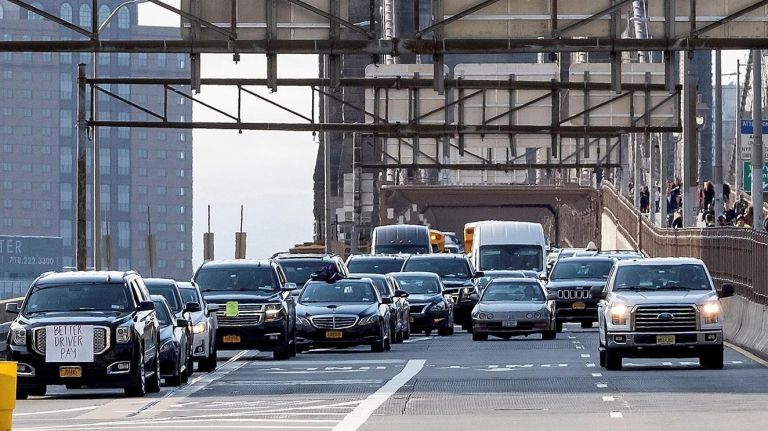
A third, separate rally accompanied a Taxi Workers Alliance news conference Wednesday morning against the backdrop of the “Charging Bull” sculpture in lower Manhattan.
Uber, which is not close to being a profitable company, has a reputation for unfair treatment of its drivers. Workers around the world were angered by the company’s SEC filing, in which Uber anticipated increasing driver dissatisfaction as it seeks to cut back incentives to turn a profit.
Drivers in New York are fighting for a universal fare structure across the industry, and to take home at least 80 percent of revenue from trip fares. The de Blasio administration has worked to boost app-based driver wages, recently securing a $17.50-an-hour minimum base pay.
“That’s a very good start,” said Aziz Bah, an app-based driver from Corona, Queens, who also took part in the first rally, organized by the Independent Drivers Guild. “We will take any help we can get. We just want to be heard at this point."

The first-of-its kind rule followed a tragic series of driver suicides, which advocates attributed to upended financial security that came when Uber, Lyft and other companies flooded city streets with cars. The city rule was inspired but a city-commissioned report that found that 85 percent of drivers in the city earned less than the minimum wage in the city.
Low wages over long hours are critical to the operations of e-hail companies, according to Meera Joshi, the former Taxi & Limousine commissioner who ushered in the rule.
“40% of the time a driver is sitting there empty [without a passenger],” Joshi said during an appearance on NY1 Wednesday morning. “But that … reduces the wait time, which is why a company like Uber or Lyft wants lots of drivers waiting at the ready, despite the fact that it makes it very difficult to make a living.”
Lyft said in a statement that the company had increased drivers’ hourly earnings by 7% over the last two year. Drivers tend to work for multiple apps to maximize their earnings.
“We know that access to flexible, extra income makes a big difference for millions of people, and we’re constantly working to improve how we can best serve our driver community,” Lyft stated.
The Independent Drivers Guild held the first rally at the company headquarters. The group, which is funded by Uber and under contract with the company, didn’t officially endorse the strike but stood in solidarity with workers, it said.
The New York Taxi Workers Alliance, which had endorsed and organized a strike in the city, held its own rally at the same location Wednesday afternoon.
It was unclear what impact the two-hour strike had on Uber service. Some commuters in Brooklyn knew about the strike, but many said they got to work other ways.
Mastoud Arbabzadeh, 55, of lower Manhattan around Canal Street, saw his friend off from the Marriott in Downtown Brooklyn. She was heading to the airport to go back to Toronto.
“I got nervous because [she] is going to the airport and I was wondering if we were going to find [a cab] or not,” he said, adding he had heard about the strike this morning. He ordered and Uber anyway. “It got here in three minutes. I didn’t see a difference.”
But he said he was supportive of the strike.
“They have a point, because the percentage they get off each ride is not much,” he said. “I use an Uber a lot — four, five times a day. I agree with them.”
Uber issued a statement around 9:30 a.m. saying that it did not see any significant impact on the reliability of service — that includes wait times, percentage of trips surged, and/or number of drivers online. The TLC publishes trip data, but does not have such figures available in real time.
“Drivers are at the heart of our service, and we can’t succeed without them,” Uber Spokesman Harry Hartfield said in a statement. “We’ll continue working to improve drivers’ experience for and with them, every day.”
In all, NYTWA founder Bhairavi Desa felt the strike and accompanying events successfully delivered the message that the drivers have been facing “exploitation” from app companies for years. And she noted wasn’t surprised that Uber would try to downplay the impact of the strike with its IPO on the line.
“We’ve sent the message to Uber and Lyft,” Desai said Wednesday afternoon. “This was just our first shot. It’s going to get better and better. So they better look out. We’re not scared of them.”
